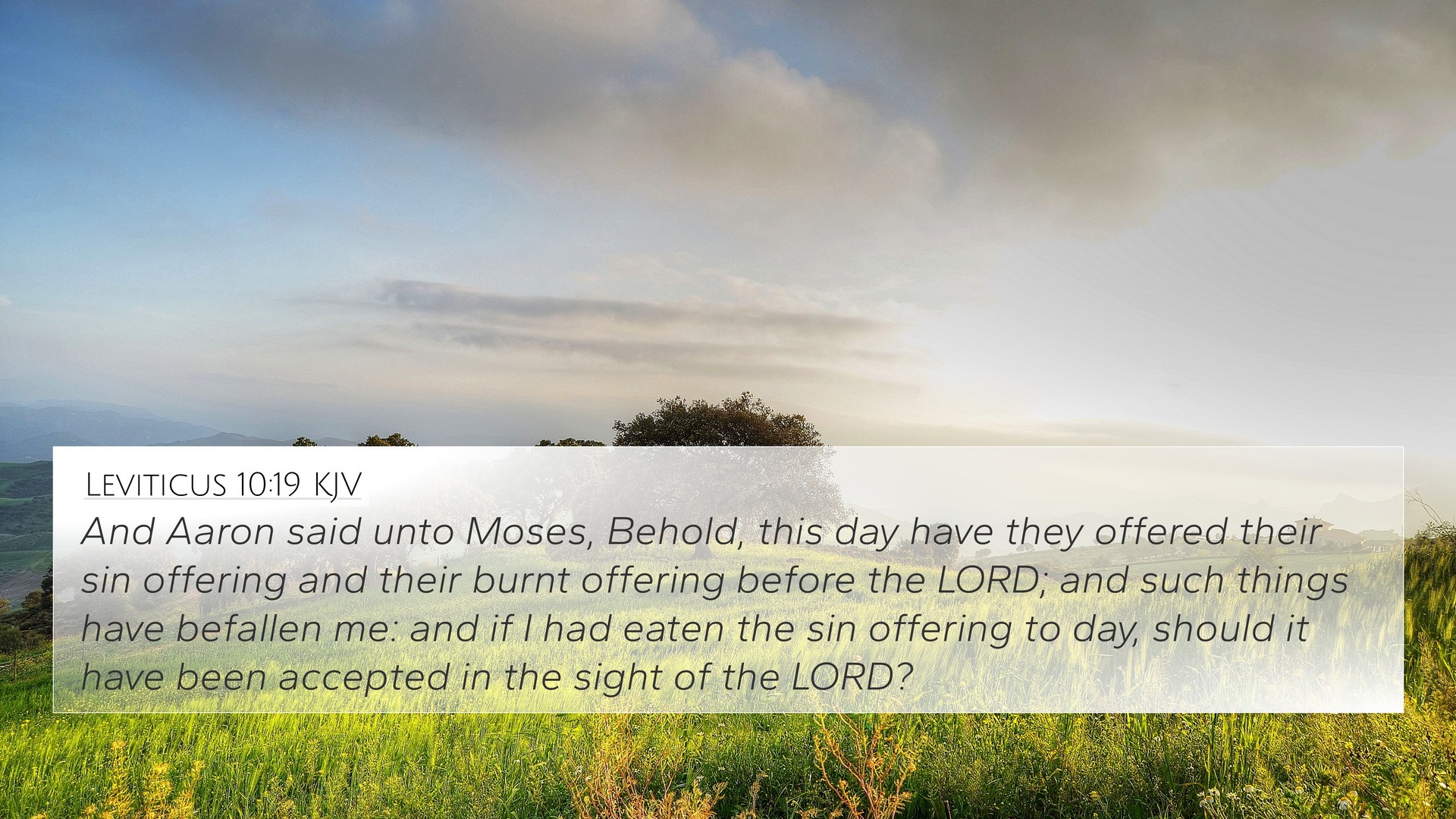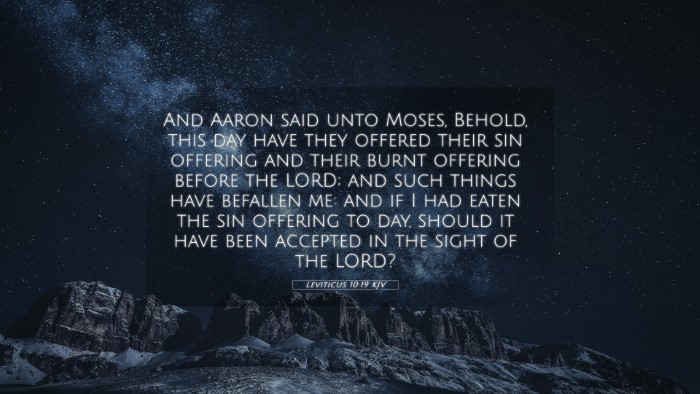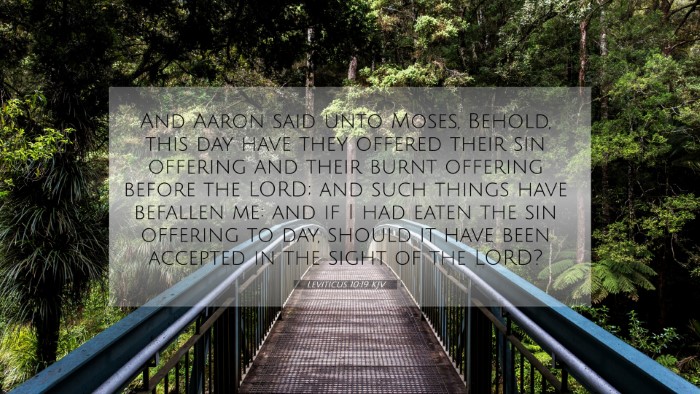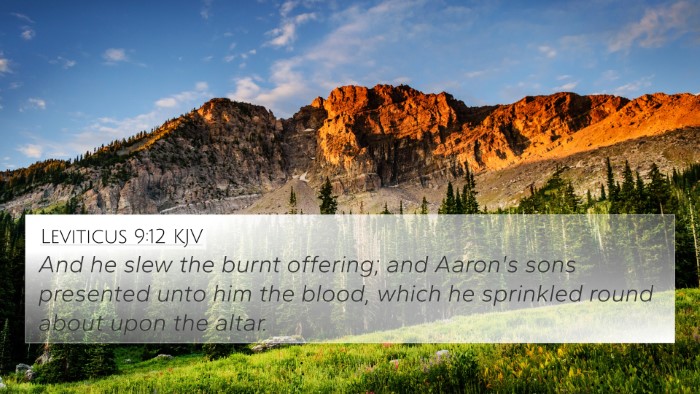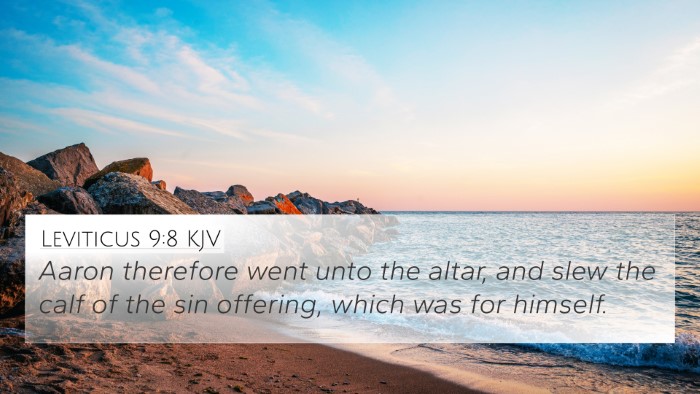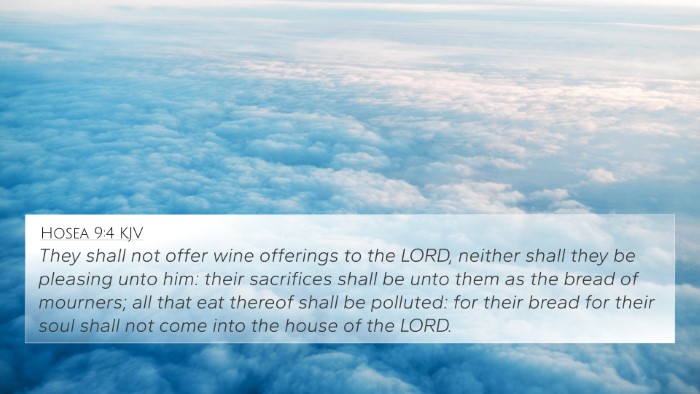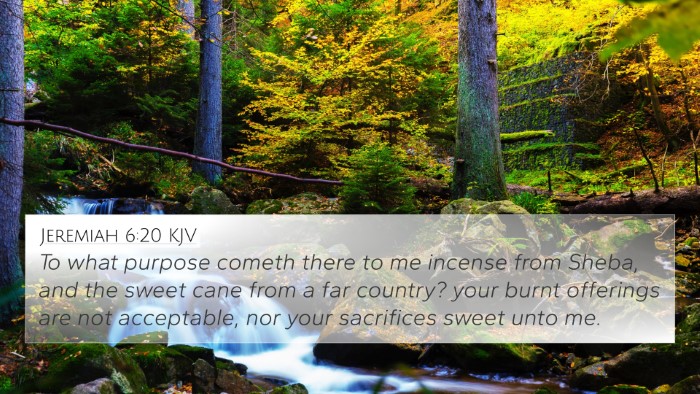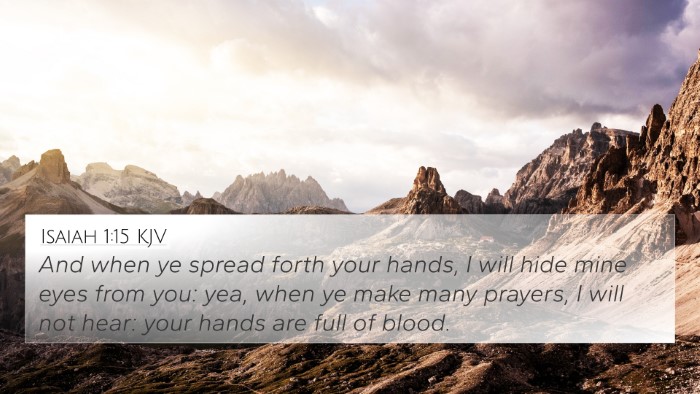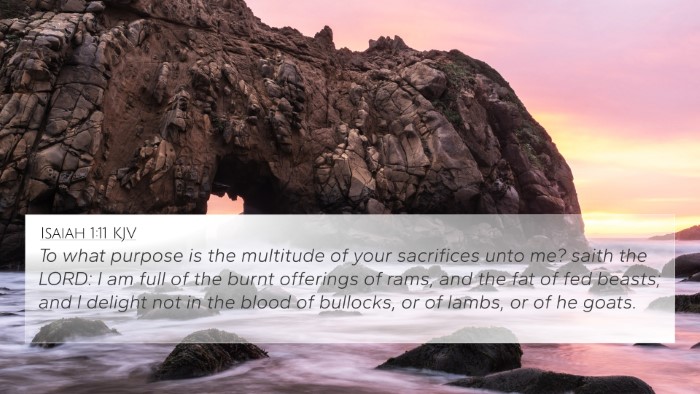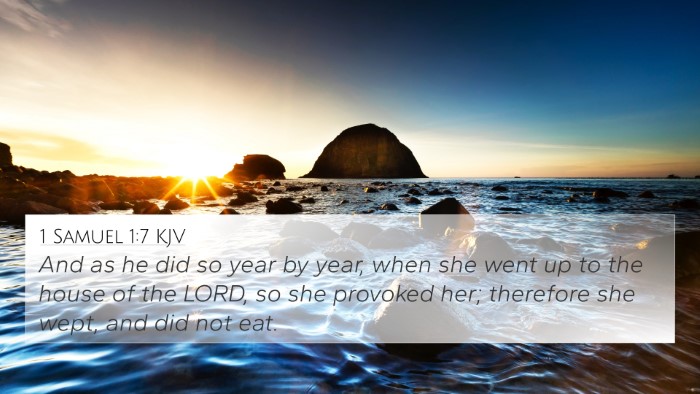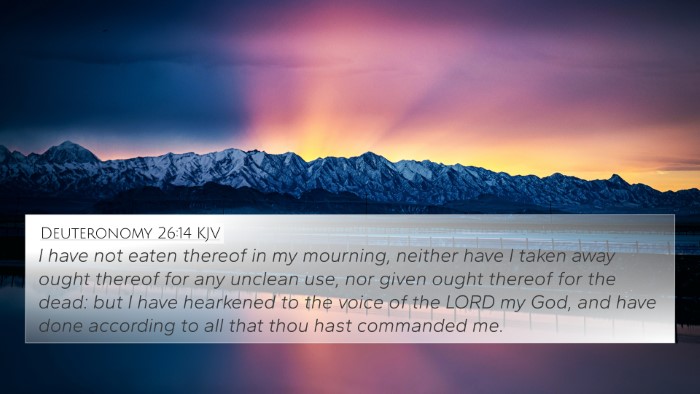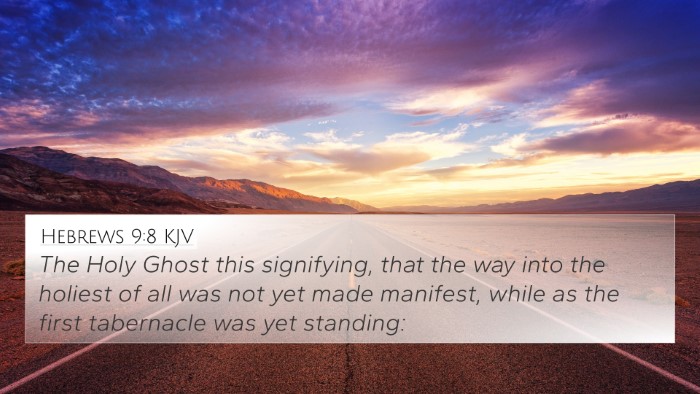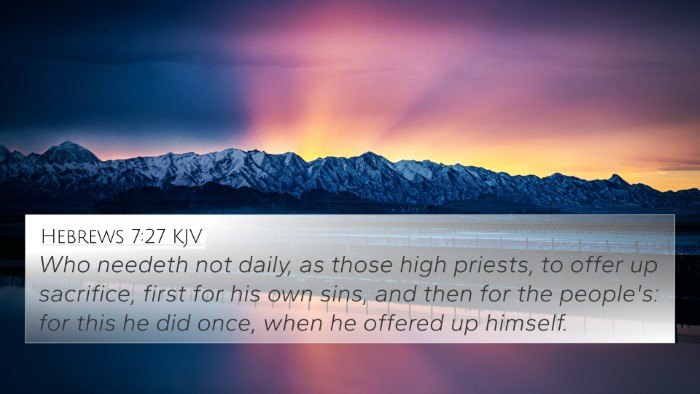Understanding Leviticus 10:19
Leviticus 10:19 states: "And Aaron said to Moses, 'Behold, this day they have offered their sin offering and their burnt offering before the Lord; and things like these have happened to me. If I had eaten the sin offering today, would it have been good in the sight of the Lord?'" This verse encapsulates a critical moment during the establishment of divine order in worship and the serious nature of offerings within the Israelite community.
Summary of Meaning
This verse highlights Aaron's concern regarding the propriety of engaging in consumption of an offering under extraordinary circumstances. It reflects on the relationship between the actions of the priests and the nature of obedience to God's commands.
Commentary Insights
Matthew Henry's Commentary
Henry comments that Aaron expresses his hesitation regarding the consumption of the sin offering in the face of calamity. Aaron believes that it would not be right to partake while mourning the loss of his sons who had perished due to disobedience to God. This points to a profound understanding of God's holiness and the requirements for priests in representing the people of Israel before Him.
Albert Barnes' Notes on the Bible
Barnes elaborates on the idea that Aaron was keenly aware of the consequences of eating the sin offering. He addresses the notion of the significance of the offering, suggesting that Aaron's concern meant that he respected the seriousness of the Lord's commandments. Aaron's actions demonstrate his humility in the face of divine judgment and reflect his role in maintaining honor in the sacrificial system.
Adam Clarke's Commentary
Clarke emphasizes that Aaron's words reveal a deep reverence for the ritual and sacrificial system established by God. He rightly questions whether participating in such acts of worship amid personal tragedy would truly be acceptable. The sentiment stresses the value placed upon integrity and the need for sincerity in worship practices.
Bible Cross-References
- Leviticus 10:1-2: Highlights the seriousness of approaching God improperly and the consequences.
- Numbers 18:1-2: Discusses the roles and responsibilities of the priests.
- Hebrews 9:22: A New Testament reference that stresses the significance of blood in the sacrificial system.
- Exodus 30:10: Describes the sin offerings and their necessity for atonement.
- 1 Samuel 15:22: Emphasizes obedience over sacrifice, paralleling Aaron's respectful hesitance.
- Romans 12:1: Connects the idea of presenting ourselves as living sacrifices in response to God’s mercy.
- 1 Peter 2:5: Discusses believers as a holy priesthood, drawing a line to Aaron’s priestly role.
Thematic Connections and Links
Leviticus 10:19 invites reflection on themes such as obedience, reverence, and the nature of worship. These concepts resonate throughout scripture, establishing a framework for understanding how God desires His people to approach Him. By recognizing the significance of sacrifices and the conditions under which they are offered, the faithful are shown deeper insights into true worship.
Cross-Referencing Biblical Texts
This verse demonstrates how interconnected the scriptures are and underlines the importance of cross-referencing Bible verses to gain a holistic view of God's expectations. For instance, examining the contrasts and parallels found in the aforementioned references allows a greater understanding of the overarching narrative of obedience in worship.
Exploring Connections between Bible Verses
Through comparative Bible verse analysis, readers can explore how the themes in Leviticus 10:19 connect to personal faith and current practices within Christian communities. By linking Old Testament regulations with New Testament teachings, believers can draw insights on how God calls for both reverence in worship and deep commitment to His commands, even in challenging circumstances.
Conclusion
Leviticus 10:19 serves as a crucial reminder of the holiness of God and what that requires of those who serve Him. By understanding this verse and its connections across the Bible, individuals can appreciate the richness of God's plan for redemption and the elevated call for sincerity in worship.
Using Tools for Bible Cross-Referencing
For deeper studies, utilizing tools such as a bible concordance or bible cross-reference guide can enhance one’s understanding of the intricate web of relationships between Biblical texts.
